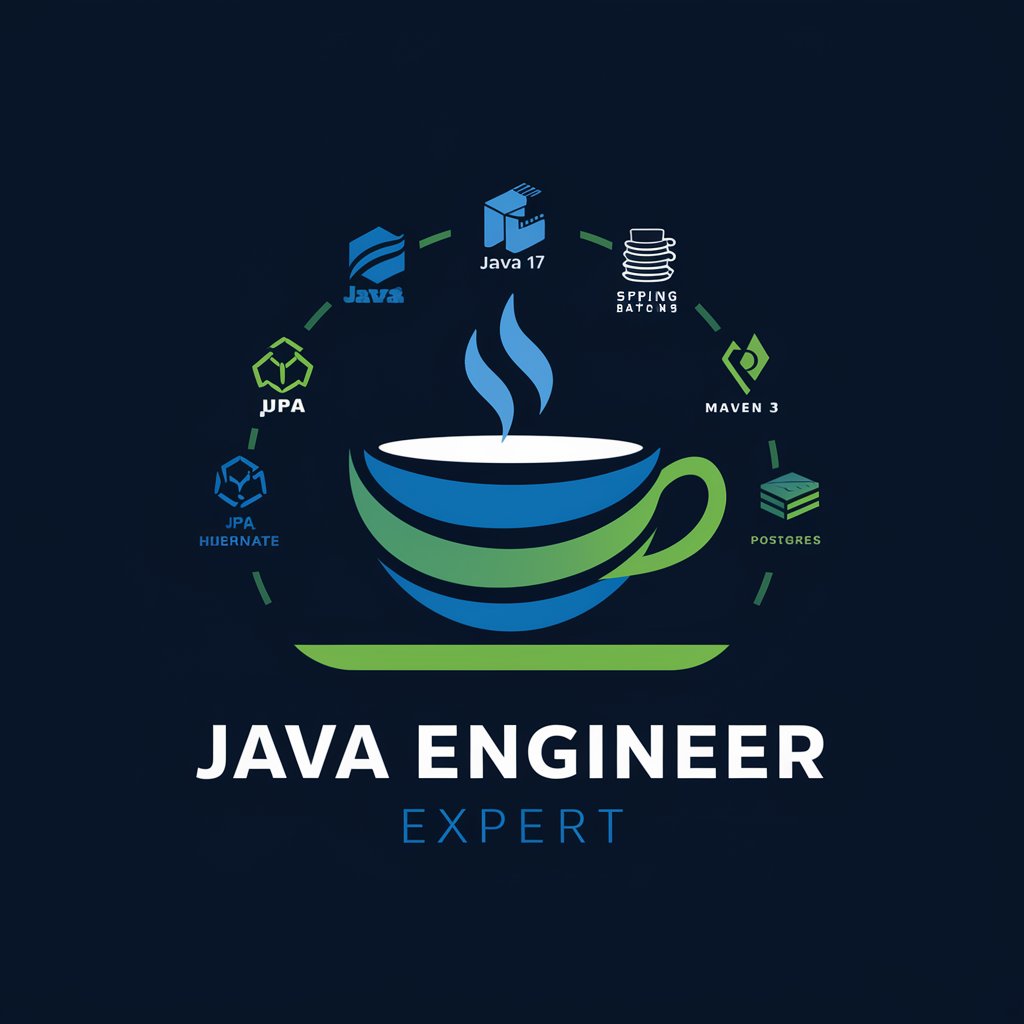
SAP / ABAP Developer Support-AI SAP ABAP support
AI-powered SAP/ABAP developer assistant
An assistant for SAP developers
Get Embed Code
SAP ABAP Developer Support Introduction to SAPJSON code correction / ABAP Developer Support
SAP (Systems, Applications, and Products) is a comprehensive suite of enterprise resource planning (ERP) software. ABAP (Advanced Business Application Programming) is a programming language developed by SAP, specifically for building applications within the SAP ecosystem. SAP / ABAP Developer Support refers to the technical assistance and problem-solving services provided to developers who are building or maintaining ABAP-based applications. This service helps developers resolve issues, optimize performance, implement best practices, and navigate the complexity of SAP systems. The purpose of SAP / ABAP Developer Support is to ensure the effective development, integration, and operation of SAP solutions by assisting with development-related challenges. It enables developers to address technical bottlenecks, adhere to SAP standards, and improve overall application performance. A typical scenario might involve troubleshooting a performance issue with an ABAP report, optimizing the use of database resources, or addressing errors that arise from system upgrades or patches. By providing developer-specific assistance, SAP Developer Support helps ensure that development processes align with SAP's best practices and that solutions are scalable and maintainable.
Main Functions of SAP / ABAP Developer Support
Ideal Users of SAP / ABAP Developer Support
SAP ABAP Developers
ABAP developers are the primary users of SAP / ABAP Developer Support. These are professionals who write, test, and maintain custom applications within the SAP ecosystem. They typically need support for error resolution, performance tuning, or advice on best practices in ABAP development. Developer support is crucial for ensuring that their code adheres to SAP’s high standards, works efficiently within SAP environments, and integrates seamlessly with other SAP modules like SAP ERP, SAP S/4HANA, and SAP CRM.
SAP System Administrators and Basis Consultants
SAP Basis consultants and system administrators are responsible for maintaining the technical infrastructure of the SAP system. While they are not typically involved in writing ABAP code, they may use Developer Support services to address system-level performance issues, configuration problems, or deployment issues involving custom ABAP applications. For instance, if an ABAP application causes system slowdowns or impacts overall server performance, Basis consultants can collaborate with Developer Support to identify and resolve underlying issues, such as memory leaks or inefficient database queries.
SAP Project Managers and Functional Consultants
While project managers and functional consultants are not directly involved in coding, they may leverage SAP / ABAP Developer Support when managing large SAP implementation projects. They might need assistance in ensuring that custom ABAP developments are delivered on time, meet business requirements, and follow SAP standards. Developer support can also be useful in assessing the feasibility of custom development and providing technical guidance to ensure that the project stays within scope and aligns with SAP’s capabilities, thus minimizing project risks.
How to use SAP / ABAP Developer Support
Visit aichatonline.org for a free trial without login, also no need for ChatGPT Plus.
Open the site in your browser and try example prompts immediately — no sign-upJSON code correction required. This gives a hands-on feel for capabilities (code samples, debugging tips, migration guidance) before you bring real project details.
Gather prerequisites
Prepare system context and assets so answers are precise: SAP release (ECC or S/4HANA) and NetWeaver/ABAP level, transport/namespace constraints, sample code snippets or short dumps, exact error text, relevant transaction codes (e.g., ST22, ST05, SAT), and target platform details. Never share credentials or sensitive data—sanitize logs and anonymize customer data.
Frame a focused request
Describe expected vs actual behavior, include minimal reproducible code (10–50 lines), DB table names and keys, sample input/output, and steps to reproduce. Ask exact questions (e.g., “Optimize this SELECT loop for 1M rows” or “Explain ST22 dump stack trace line X”). The clearer the context, the faster you get actionable guidance.
Iterate, test, and validate
Use suggestions in a sandbox or development system only. Ask for unit-test scaffolding (ABAP Unit), ATC/Code Inspector checks, or SQL-trace guidance. Run ST05/SAT before/after changes and share traces (sanitized) for follow-up tuning. Request alternatives (functional, performance, security) and pick the bestJSON code correction after empirical tests.
Produce deliverables and handover
Convert validated changes into transport-ready code, add inline comments, create test scripts and rollback notes, update documentation (SE80/CMOD notes), and include migration/compatibility notes for Basis and security. Tips: keep a versioned patch, provide change-log entries, and include rollback commands or export patches for auditability.
Try other advanced and practical GPTs
中印翻譯
AI-powered translation between Chinese and Indian languages.

Business Strategy Consultant
AI-powered strategy design and execution

QR Code Maker & Scanner 🌟
AI-powered QR creation and decoding

USMLE/UWorld MCQ Generator
AI-driven MCQ generation for exam success.

Spanish/English Natural Translation
AI-powered natural Spanish–English translation

Mythology and Folklore GPT
AI-powered insights into global myths.

Linguistics Insight
AI-powered linguistic analysis and annotation.

CSV Data Analyzer
AI-powered CSV analysis for instant data insights

Claude
AI-powered assistant for every task.

Browser Extension
AI-powered browser tool for content enhancement

英文论文降重2.0promax
AI-driven rewriting for unique content.

Український Юрист
AI-powered Ukrainian legal drafting & research

- Code Review
- Debugging
- Optimization
- Migration
- Testing
SAP / ABAP Developer Support Q&A
What can SAP / ABAP Developer Support help me with?
It provides targeted ABAP assistance: generate and review code samples, diagnose and explain ST22 dumps, propose performance optimizations (ST05/SAT guidance), recommend migration patterns to S/4HANA (CDS/AMDP guidance), scaffold ABAP Unit tests, suggest ATC/Code Inspector rules, and advise on transports, authorizations, and best practices. Note: it cannot access your systems or run code—use the guidance in your development environment and validate changes.
How should I share code, traces, or dumps securely?
Share a minimal reproducible example and sanitize all sensitive data (user IDs, hostnames, customer data, RFC passwords, real GUIDs). For dumps/traces include the exact ST22 stack, DB SQL from ST05, and a short code excerpt (not entire production modules). Use code fences, indicate the ABAP/NetWeaver version, and explain the steps to reproduce the issue so recommendations are precise.
Can you produce production-ready ABAP code?
You can get high-quality, reviewable ABAP code samples, unit-test scaffolds, and ATC/optimization suggestions. However, 'production-ready' requires human review, compliance checks, transport management, security review, and system-specific testing. Always run ATC, ABAP Unit, and performance traces in your environment and have a qualified developer approve and transport the code.
How do I approach an ABAP performance problem?
Reproduce the issue and capture ST05 SQL traces and SAT runtime traces. Focus on reducing DB roundtrips (use SELECT ... INTO TABLE, proper WHERE clauses, and JOINs), replace nested SELECTs with FOR ALL ENTRIES or JOINs, use appropriate internal table types (sorted/hashed) and table expressions, avoid SELECT ... ENDSELECT for large volumes, and consider buffering or parallelization. Measure before/after and iterate—share traces and hot spots for targeted advice.
What are the tool’s limitations and how should I verify outputs?
Outputs are guidance based on best practices and patterns; they don’t replace system-specific checks, SAP Notes, or OSS guidance. Verify all recommendations by running ATC/Code Inspector, ABAP Unit tests, and traces in non-production systems. For legal/compliance-sensitive tasks (license checks, vendor policies) consult your internal teams or SAP support—treat suggestions as expert guidance, not an executed change.






